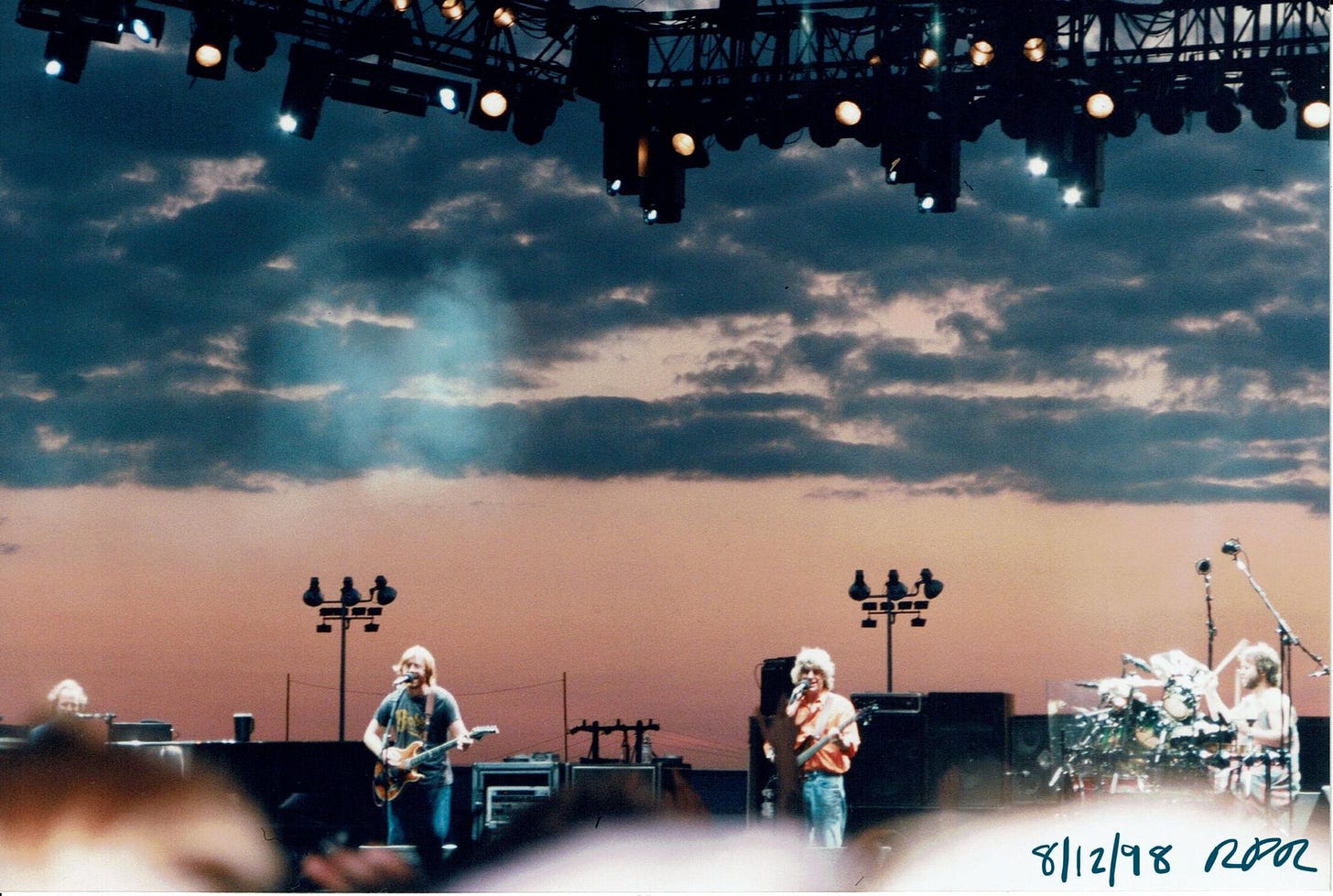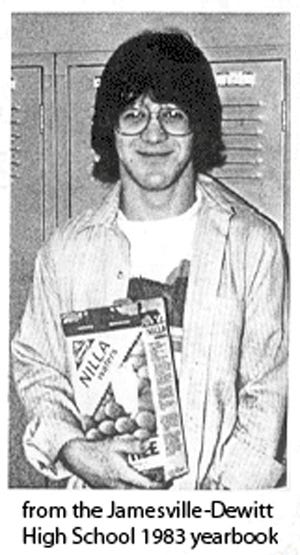
SET 1: La Grange > Makisupa Policeman > Funky Bitch, Possum, Roggae, Character Zero, Ramble On -> Slave to the Traffic Light
SET 2: Mike's Song > Simple > Rift, Loving Cup > Sleeping Monkey > Weekapaug Groove, The Squirming Coil
ENCORE: Burning Down the House[1], You Enjoy Myself
Listen on phish.in
In 1998, Phish were a band that could sell out basically any venue they wanted in the United States, that promoted their new albums with David Letterman on national television, that had its festivals covered by Rolling Stone – even if it would take five more years to make the cover of Rolling Stone. But it wasn’t all that long ago that the members of Phish were the kind of teenagers who name their rock band…wait for it…make sure you’re sitting down…almost time…FRODO. And we’re not about the late 60s/early 70s era when Tolkien’s epic was re-embraced by hip culture or when it was the biggest film franchise of the 2000s, we’re talking the early 80s, when Lord of the Rings was in freshest cultural memory as a janky animated musical.
It’s not like Phish was in denial about this essential dorkiness, and most of this show near Fishman’s hometown of Syracuse is spent razzing the drummer over his high school days. Even his childhood claim to coolness – seeing Led Zeppelin as an 11-year-old – gets mocked away by Trey: “Fish tells us all the time,” he says. Witnessing Zeppelin is indeed cool; seeing them with, presumably, his parents, much less so. Given that one of my favorite descriptions of Phish’s sound is “desexualized Zeppelin,” it’s all too perfect that a prepubescent member of the band went to see them.
Beyond the banter, 8/12/98 finds Phish reenacting the rock n’ roll fantasies of that classic-rock obsessed pre-teen. The setlist is a hand-drawn notebook cover of famous band logos: ZZ Top, Zeppelin, The Stones, a little Clapton, a bit of Beatles. It’s a retreat to comfort food after the eclectic covers of the last two weeks, a regression they’ve earned after painstakingly documenting that their taste has broadened since they were pimply little twerps.
The show is nostalgic in other ways too, with a bunch of material that dates back to the 80s and only one song (Roggae) from the current crop of heavy rotation originals. But the band still sounds mature and regal on the early stuff, like someone coming back to their high school reunion all glowed up. It’s particularly apparent in the half hour of Mike’s > Simple, a 1985 vintage and its 1994 offspring made into a determined hard-funk strut followed by a delicate, unhurried, four-way conversation.
The night’s other highlight, Ramble On > Slave, sutures the two show threads of classic vinyl hits and old-school originals. I’ll put aside my homerism and say that this Ramble On is superior to the Alpine debut; the way the band spirals off the original into new space is Phish’s postmodern classic rock in a nutshell, splicing the song with “Cocaine” for no clear reason (was 11-year-old Fish on the snow?) and evolving that outro melody into a cosmic ending that Zeppelin, for all their powers, would never risk. Folding it into a Slave that interpolates that same Ramble On riff shows just how deeply set those legendary bands are in Phish’s DNA, even if the end product comes out like some twisted mutant.
Because elsewhere in this show, Phish lets its dork flag fly. It’s a show with two different puns about Vernon Downs/burning down, a setlist where the “ballad” of the second set is Sleeping Monkey, a night that ends with the band fighting through laughter as they riff on the phrase “Who’s your daddy?” in the YEM vocal jam. The parade of covers reaches an appropriate terminus in the Talking Heads, perhaps the greatest dork-rock band of them all, another band that took hyper-masculine influences and alchemized them into music for weirdos, outcasts, and dweebs.
It’s all pretty adorable, and as unrepentant a display of Phish’s polymath influence and weirdness as 8/1/98. Over the last two summers, we’ve talked about how the final show before the festival can be extra edgy in ways both good and bad, processing their nerves through a large cast of guests or a loose and jam-heavy performance. The last show before Lemonwheel takes a third path, sinking into nostalgia and lovingly teasing their past selves before their present ones play the big gig.




